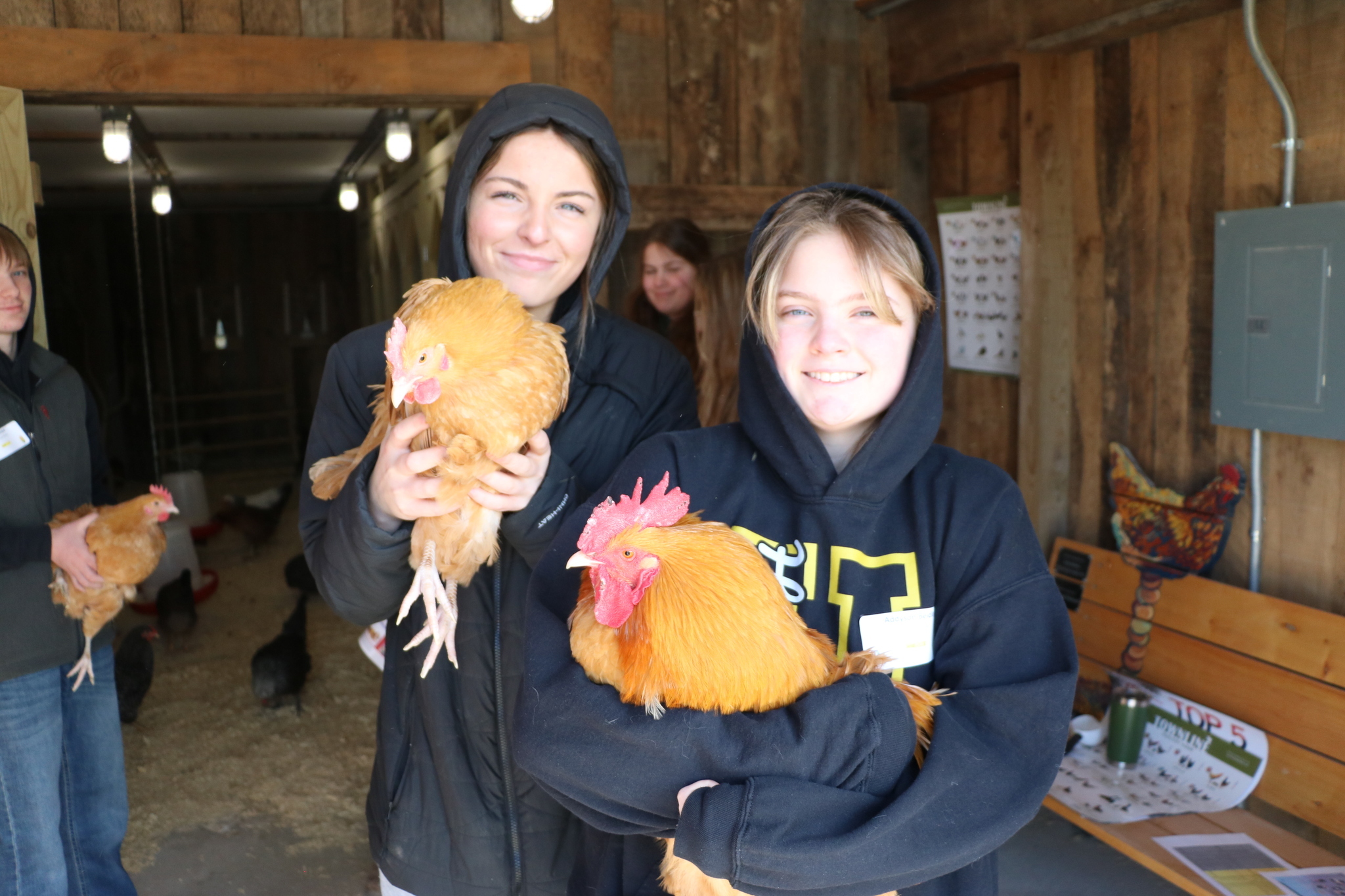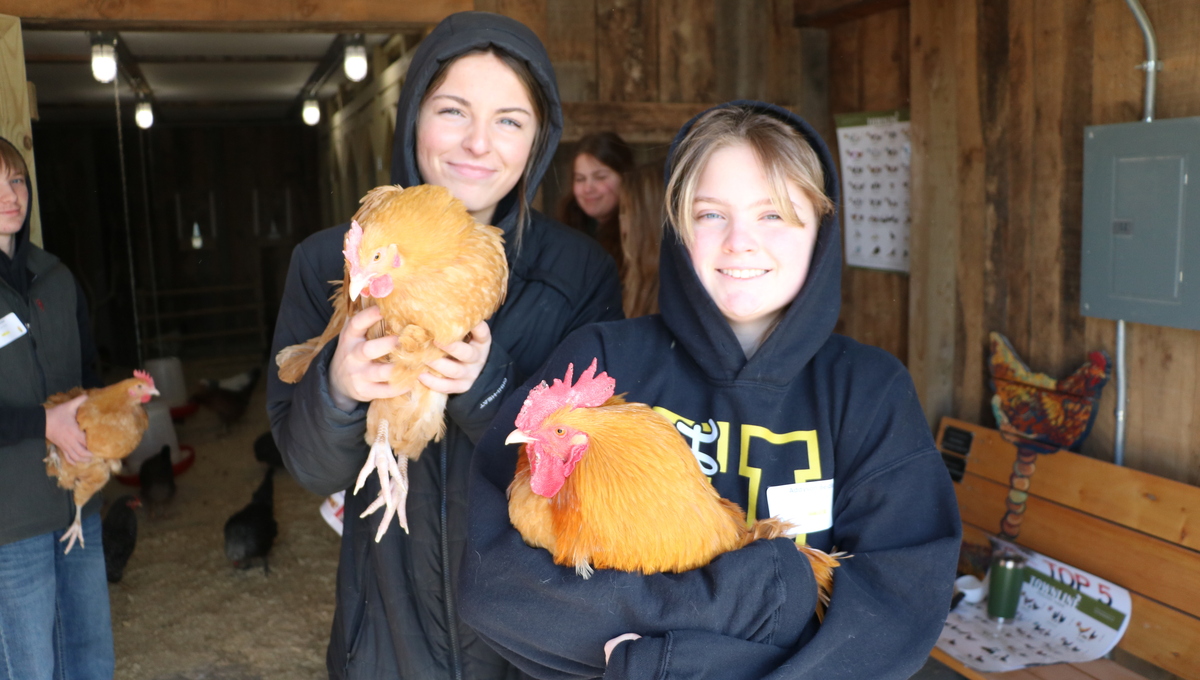
Hamilton Community Schools believes in providing opportunities for all students to find their passions and interests at a young age. Each grade 5th through 9th has a unique career field they explore throughout the school year. On Monday, February 26, the Hamilton Middle School 8th graders were able to learn more about careers and opportunities in agriscience.
"It's pretty cool they're doing this," said 2020 Hamilton High School graduate and Hogquest Farms employee, Bryce Jipping. "Obviously, this is an agricultural community, a lot of people know about farming and stuff around here but they don't always know about the work that goes into it."
Jipping returned to his alma mater on Monday to help teach the students about Hogquest Farms and agscience careers. He also says the experiences throughout high school was something he realized had a big impact on him after graduating from Hamilton.
"Not many schools are doing something like this, not even related to ag, just businesses in general. These opportunities set you up for the future and what you want to do in life."
The entire 8th grade class split into two groups, with one going to the Critter Barn in Zeeland and the other starting at Cultivate Church where ten local businesses led stations on their lessons.
"The goal of today is for the students to gain awareness around agscience careers and different options that are right here in our community," said Hamilton Community Schools Work Based Learning coordinator, Ashley Meyer. "Also, we want students to gain a greater appreciation for animal care and how food goes from farm to table."
8th grader Tyler Statler is one of multiple students who entered the day with an interest in farming and agscience in general.
"Today has been very interesting and fun to learn about all of this," Statler said. "I learned a lot about farming and how it helps our community and the world."
Critter Barn executive director Tony McCaul had the students go through ten stations while on their campus, from learning about plants and natural resources, to holding chickens, petting goats, sheep, and rabbits, and every animal in-between.
"It's extremely important for the youth to realize where their food comes from and all of the careers that go into that," McCaul added. "It gets their eyes and minds thinking about agriculture and how math, science, STEM, and everything gets them connected to the real world."





